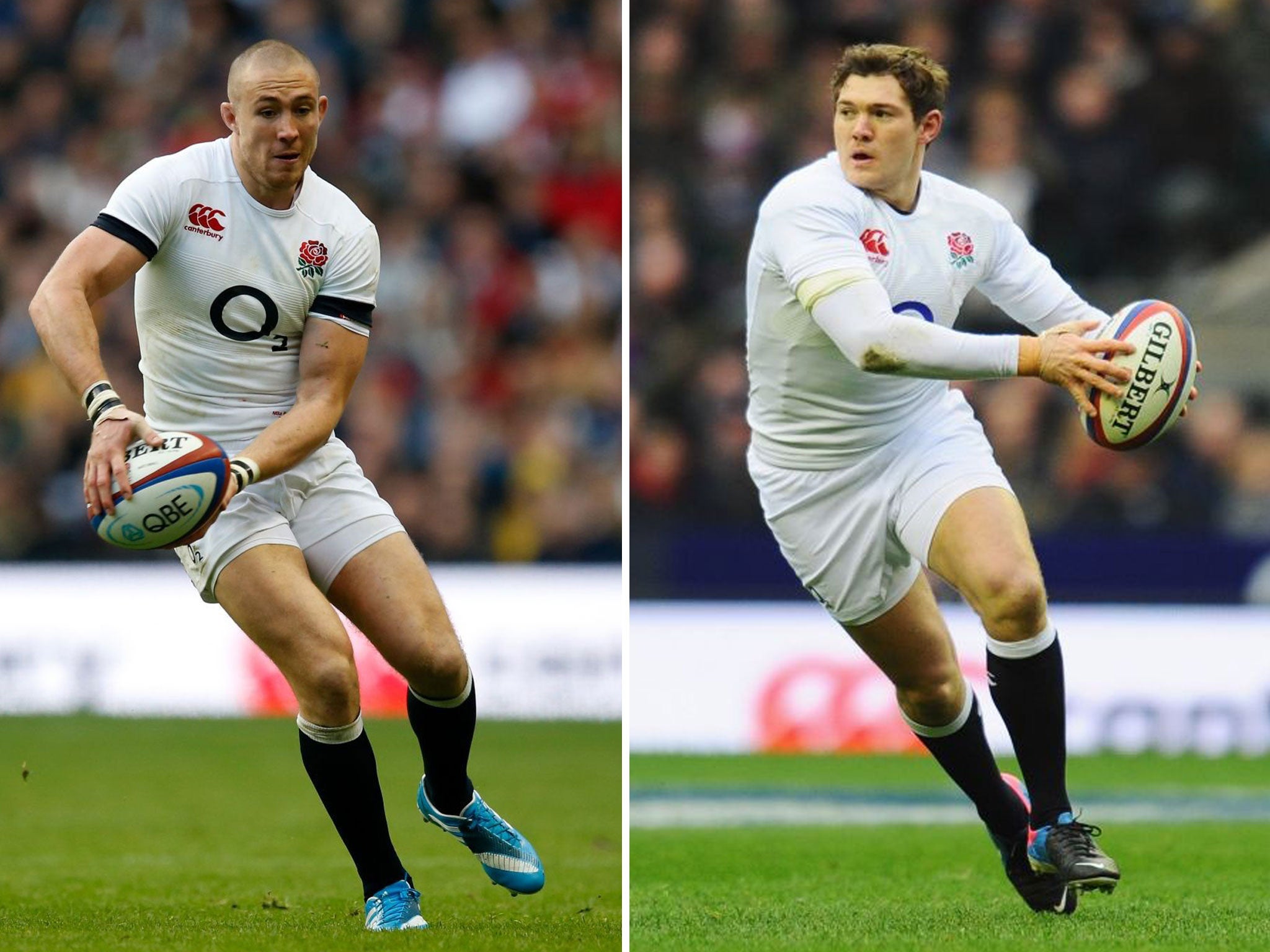Six Nations: New England attack must address shortage of tries
Old boys helping Stuart Lancaster turn Mike Brown, Alex Goode and Co into a Six Nations scoring machine

England's worry over their misfiring attack has given Saracens' Alex Goode the chance to oust Mike Brown from the national team, even though the Harlequins full-back was player of the series during the autumn Tests.
England were criticised throughout 2013 for an incoherent attacking framework and a shortage of tries against tight defences, and after losing to a "moment of magic" by New Zealand in November they identified a lack of instinctive flair as one of the problems to rectify going into the Six Nations Championship.
Head coach Stuart Lancaster has tasked attacking skills coach Mike Catt with improving the ability of decision-making players such as the centre Billy Twelvetrees to read opponents' body language.
And in addition to sounding out 10 former players in the quest for a better team identity and culture, Lancaster and Catt have consulted past master Jerry Guscott on how to pick the correct pass, run or kick under pressure.
It was a repeated failing of England's in 2013, when they scored 23 tries in 10 matches – 15 of them in three meetings with a weakened Argentina – compared to New Zealand's 51 tries in 14 matches.
England scored no tries against Italy, Ireland and Wales, and were outscored by three to one when the All Blacks won 30-22 at Twickenham, culminating in Julian Savea's spectacular try that featured the "two-sided attack" England are working to develop for themselves, and a brilliant pass out of a double tackle by Ma'a Nonu.
Lancaster wants Brown to transfer his best work to the opposition 22. "Mike's ability in the back field is brilliant," said Lancaster. "But then to act as that attacking link player, and his kicking game as well, that is what he's working on."
England rate Goode as their most natural footballer for intuitive feel and the Saracen has rediscovered his best touch recently after missing England's summer tour through injury. His ability to cover the fly-half position adds to his appeal.
"Attack takes time to develop," said Goode. "It's taken Saracens a couple of years to improve ours, and with England you need to become comfortable with your team-mates. It comes down to communication and decisive action. I'm at my best when I feel decisive."
It is a handicap to Lancaster's plans that England's squad is drawn from clubs with a variety of attacking set-ups, whereas in New Zealand the Super Rugby teams play to suit the All Blacks. In an attempt to redress the balance, a number of Premiership assistant coaches attended England training during the autumn.
And England believe they now have a clear attacking philosophy based on creating width across the field, space between defenders and positions of threat on both sides of a breakdown.
It will find favour with supporters who detest a pre-programmed, heavily structured system using "pods" of ball-carriers, and it is different from Warren Gatland's method used with the Lions and Wales of using big runners such as Jamie Roberts and George North continually "round the corner" until a weakness is found.
Andy Farrell's work as England defence coach is crucial, too – half of New Zealand's tries came from turnovers and kick returns.
And it needs rapid, heads-up decision-making of the calibre of Guscott's, who was renowned for seeing a gap in a split second.
Catt and Guscott were kindred spirits in the Bath backline in the 1990s; now Catt needs to transfer his knowledge through one-to-one and unit sessions as England prepare to play France on 1 February.
Lancaster believes the reading of opponents' body language – it could be a dip of the shoulder, an alignment of the feet or just a look in the eyes – is coachable, although the ultimate aim is for a player to produce it without conscious thought.
New recruit George Ford rates highly on that count, as does Freddie Burns, but the Gloucester fly-half has lost form and will play for the Saxons later this month.
England also have eight top players out injured while Lancaster – who will publicly reappoint Chris Robshaw as England captain next Friday – said others were "absolutely hanging" after a punishing schedule of Lions, club and international duty.
Lancaster will cut his cloth accordingly, so England may still deploy power runners such as Northampton's 6ft 3in, 17-stone centre Luther Burrell.
Goode's last England start was the 30-3 loss in Wales 10 months ago. "People write that Wales game off," he said, "but I made more metres than anyone else and felt quite good. When you lose the Six Nations, people ask questions, saying the attack's not good enough and it falls on the back-three's doorstep. Browny played well in the autumn, but then people want more – a playmaker in the front – and it's tough. Stuart [Lancaster] knows we have to evolve. New Zealand are the team at the moment but we're getting better each year."
Join our commenting forum
Join thought-provoking conversations, follow other Independent readers and see their replies
Comments
Bookmark popover
Removed from bookmarks